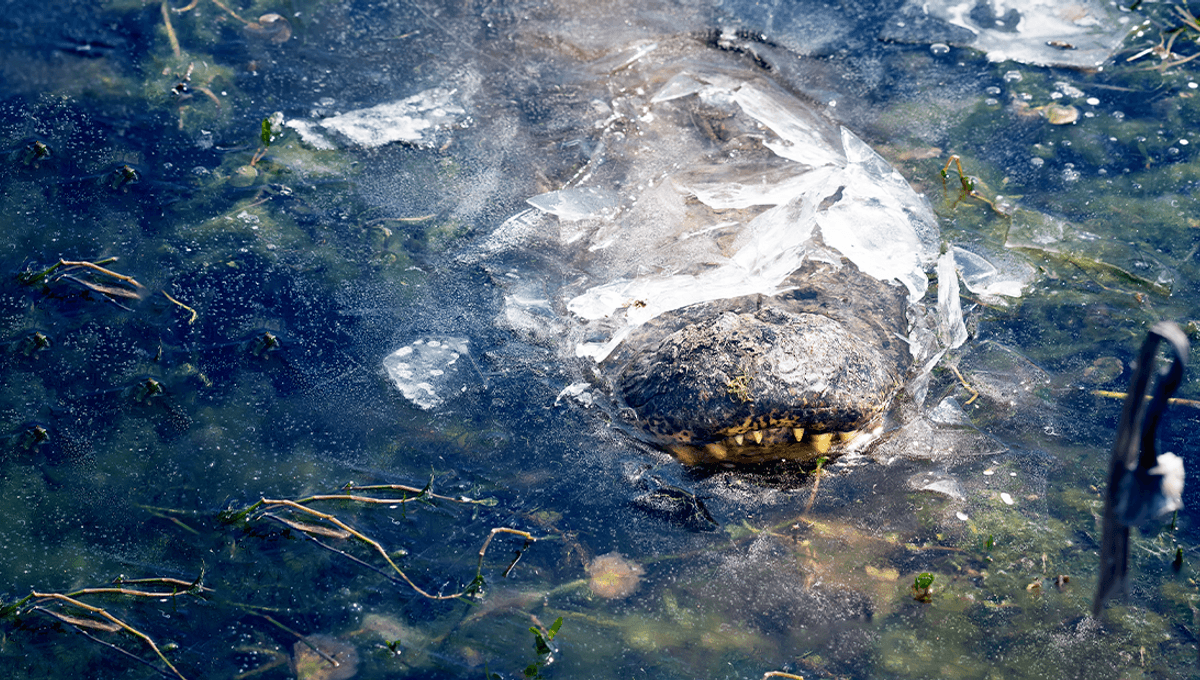
Animals have a whole range of means to survive the cold, from thick fur and warm dens to simply sleeping through the cold winter months. Alligators might not be the first creatures that come to mind when thinking about survival tactics for cold weather, but videos reveal that freezing right along with the lake is the best way for them to get through a cold snap.
In Texas and North Carolina, videos are emerging on social media of “gatorcicles”. Found in frozen bodies of water, these are alligators that have let the water freeze solidly around them. Only their noses and mouths poke out of the surface of the ice, allowing the animals to breathe.
One video shared by gatorcountytx on TikTok showed exactly that.
According to the South Carolina Aquarium, this is a process called brumation, a period of dormancy where the heart rate and other processes within the body slow down in response to cold weather. In alligators and other reptiles, it consists of a decreased body temperature, lethargy and decreased metabolism.
As these animals are cold-blooded and require warmth from the sun for their metabolism, if the temperatures get too cold, they can die. However, this period of brumation typically lasts 4-5 months in response to cold weather. It’s similar to hibernation as the animals go without eating, but it is distinct in that they will continue to drink and are not in quite as deep of a sleep state.
The TikTok account 2guysandsomeland also shared a video of “swamp puppies” frozen in their habitat and it gives a good idea of how out of it these alligators are – the person in the video is able to “boop the snoot”, although that’s definitely not recommended. And neither is licking them, even if they have been compared to popsicles.
Elsewhere in the US, more frozen animals are causing chaos, as it’s “dodge the falling iguana” time again in Florida.
Source Link: Forbidden Frozen Alligator Popsicles Seen In North Carolina And Texas – But Don't Lick Them